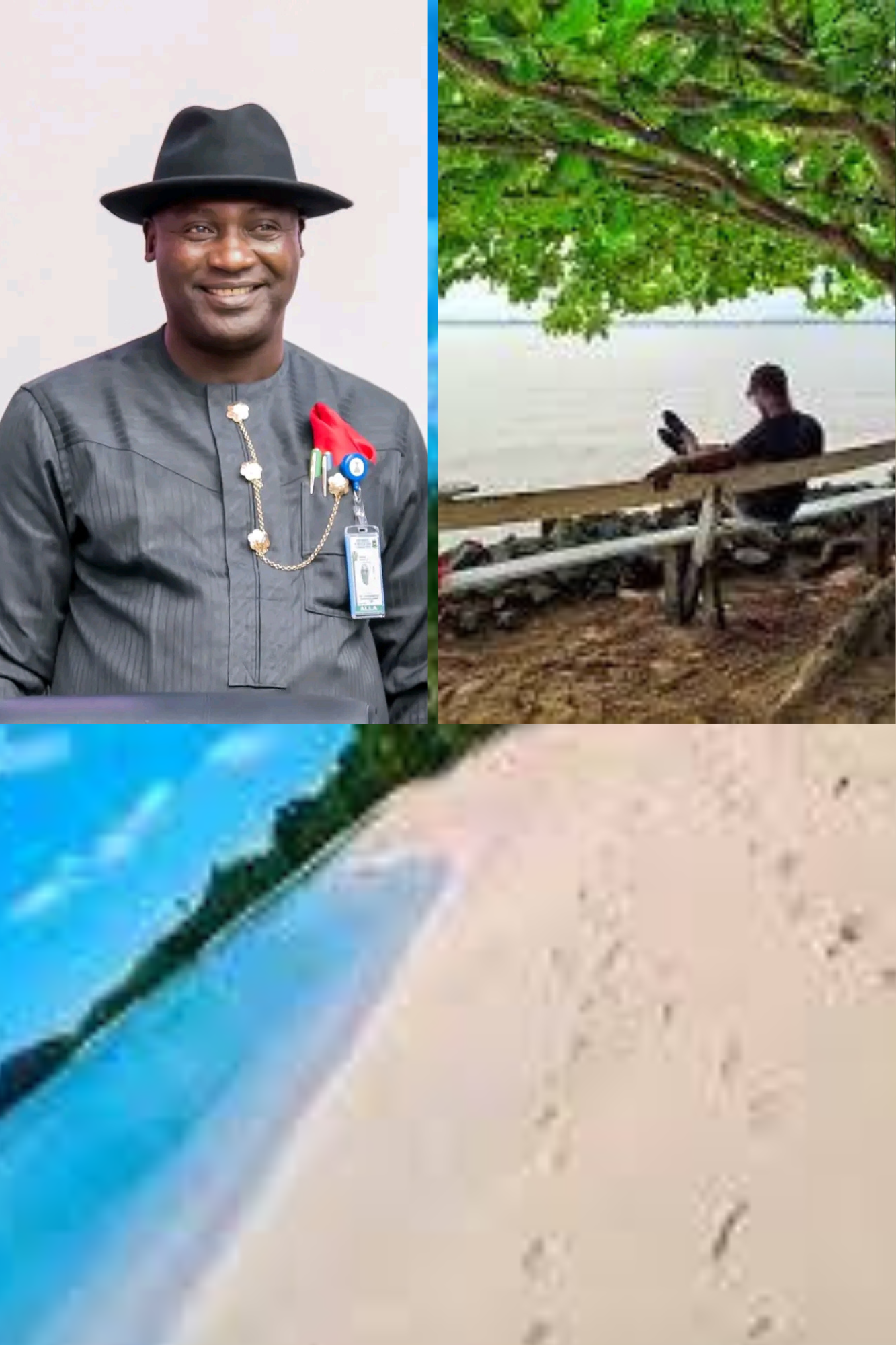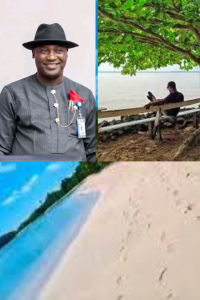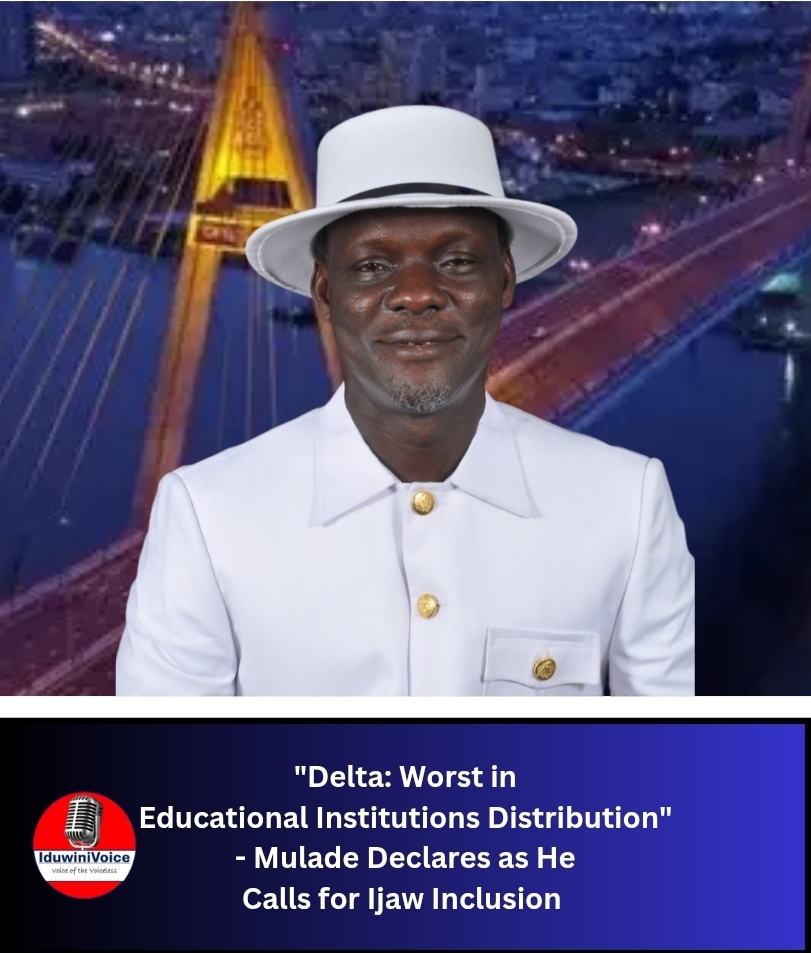Opinion
BAYELSA STATE@28 :A GLANCE AT NIGER- DELTA’S BEST-KEPT SECRET

BAYELSA STATE@28
A GLANCE AT NIGER- DELTA’S BEST-KEPT SECRET

By Tobouke JEMINE
On this day, October 1,1996, the Glory of All Lands was carved out from Rivers State by the Sani Abacha-led military regime.I am still wondering how she shared the same birthday and Independence-month with Nigeria.
Bayelsa State is one of the newest states in Nigeria. Interestingly, the name “Bayelsa” is derived from the first few letters of the major local government areas that formed the state: Brass, Yenagoa, and Sagbama.
A billion thanks to the founding patriots: Bayelsa State is a creation of sweats, sacrifices and perseverance. And it is located in the Niger Delta region of Nigeria, acknowledged for its rich oil reserves and unique cultural heritage.
Today, my lenses are fixed on its natural elegance, environmental splendours, rich culture, treasured history, festivals, wildlife, and waterways that offer diverse opportunities for both domestic and international visitors and investors. It is a potential hotspot for tourism.
Bayelsa is home to a vast network of rivers, creeks, and lush forests, providing breathtaking natural landscapes for eco-tourists. Oxbow Lake situated in the capital city of Yenagoa, is a popular spot for relaxation and recreational activities like boating, fishing, and picnicking. The serene environment makes it ideal for nature lovers.
The River Nun of Gabriel Okara’s poetry is a vital waterway, offering scenic boat rides and opportunities to explore the flora and fauna of the region. The River Nun is historically significant as it was one of the key routes for the slave trade during the dark chapters of the White man in Africa.
Bayelsa’s extensive mangrove forests are not only ecologically important but also offer adventure opportunities such as canoeing, birdwatching, and nature photography. The forests serve as a home to rare and endangered species, making it an exciting destination for wildlife enthusiasts.
The Glory of All Lands has diverse wildlife, including primates, reptiles, and aquatic species. John Alla, the Honourable Commissioner for Tourism is working on developing these reserves and sanctuaries to attract visitors interested in the biodiversity of the Niger Delta.
The state is a home to a rich cultural heritage rooted in the traditions of the Ijaw people, one of the major and oldest ethnic groups in Nigeria. This cultural heritage provides an array of opportunities for cultural and historical tourism.
Bayelsa celebrates various traditional festivals, such as the Seigbein Fishing Festival , the Ogori Ba Festival, Masquerade Festivals, and others with pomp and grandeur. These festivals showcase traditional music, dance, cuisine, and the deep connection the Ijaw people have with the water, attracting tourists interested in experiencing indigenous cultures.
The Isaac Boro monument commemorates the life of Major Isaac Jasper Adaka Boro, one of our most revered and prominent figures in the history of Niger Delta struggle. The memorial attracts visitors interested in learning about the historical and political development of the region.
In Bayelsa State, we have many historic towns like Brass, which was a hub for European traders and missionaries during the colonial period, there are remnants of colonial-era architecture and stories that could be part of historical tours. And there are glories for the eyes at Akassa Lighthouse and Peace Park?
With its extensive network of rivers, creeks, and the Atlantic coastline, the State offers ample opportunities for water-based tourism.The Agge, Orobiri, Amazor, Brass Beaches offer stunning views of the coastline. The Commissioner is putting in work to make sure the clean and inspiring beaches are developed to attract both leisure travelers and adventure seekers interested in activities like fishing and surfing.
Given its proximity to the Atlantic Ocean, Bayelsa State is ideal for deep-sea fishing, which could appeal to tourists looking for sport fishing. Boat cruises along the various rivers and creeks also present opportunities for leisure and exploration.
The Nembe waterways are another coastal area with beautiful creeks, perfect for boat rides. This part of Bayelsa provides access to traditional riverine settlements, where tourists can explore the local culture and way of life.
Bayelsa’s agricultural sector also holds potential for tourism, particularly with its cultivation of fish, cassava, plantain, and palm oil, these and its rich fishing culture, and fish farms would be developed by the Honourable Commissioner for Tourism into tourist attractions where visitors can learn about aquaculture, local fishing techniques, and the production of seafood delicacies.
The state hosts a wealth of palm oil and cassava plantations that would be opened up for guided tours where tourists experience how palm oil and cassava products are processed. This form of agro-tourism would also include culinary experiences involving local dishes made from cassava and plantain.
Bayelsa offers untapped opportunities for adventure tourism, especially given its natural terrain and riverine environment. The numerous rivers and creeks are perfect for activities like kayaking and canoeing, providing thrilling experiences for adventure tourists.
The Atlantic coast provides a unique environment for scuba diving and snorkeling. This aspect of tourism could be harnessed to attract water sports enthusiasts from across the world. Given the rich aquatic life, the state could host national or international fishing competitions, promoting the state as a hub for sport fishing.
Bayelsa has the potential to become a hub for leisure tourism, with the possibility of developing luxury resorts, hotels, and leisure centers.Developing eco-friendly resorts along the beaches or near the rivers could attract tourists looking for relaxation amidst nature. These resorts could offer activities such as fishing, bird watching, nature trails, and local cultural experiences.
The state can also develop film tourism by promoting the beautiful and diverse landscapes for film productions. This could attract filmmakers looking for natural settings, further boosting the local economy. Currently, one of our own Nollywood veteran actor, Elaweremi Pereke Elaweremi with his Ijaw Africa Movies movement is doing an enormous justice to the Ijaw entertainment industry.
Bayelsa state is truly blessed with remarkable talents and potentials in the entertainment arena. The wealth in this sector could be further explored and utilized by a partnership between the government and private institutions likes King Pereama Freetown, Chief Barrister Smooth, Alfred Izonebi, Asu Ekiye, Timaya, and upcoming brands like FC the Storyteller, Erema Yanga, Mc Kidikidi, and others — not forgetting the living legacies of late legends like the beloved King Robert Ebizimor as sources of cultural inspirations and creativity.
There is no doubting the fact that Bayelsa State’s tourism potential is immense but largely underdeveloped, and the Honourable Commissioner for Tourism, recognizing these realities and equipped with the required insights and competence, is putting resources in place to make an enduring magic out of the tourism potentials of the state.
Of equal importance is the fact that, to make a significant tourist destination out of Bayelsa State, there is the need for massive infrastructural development, investment in hospitality, and active promotion of its tourism resources and potentials both locally and internationally. And the private sector is needed in this drive to make a wonderland out of the Glory of All Lands.
May God Almighty continue to grant the Commissioner of Tourism, Hon. John Alla, the grace and wisdom to fulfill the blueprint of his ministry to the last letter, and may God bless Bayelsa State, the Jerusalem of Ijaw Nation, and the Nature’s Haven of Niger Delta.
Again, congratulations to the land of glory.
Opinion
“Delta: Worst in Educational Institutions Distribution” – Mulade Declares as He Calls for Ijaw Inclusion

By: Favour Bibaikefie
A development Ijaw leader and development advocate, Comrade Mulade Sheriff, PhD, has accused the Delta State Government of systematic marginalisation and deliberate neglect of Ijaw communities, particularly in the area of educational development and institutional presence.
Mulade, who described the situation as “unjust, provocative and unacceptable in a democratic society,” said the continued exclusion of Ijaw areas from the siting of state-owned educational institutions represents a clear case of structural discrimination, despite the region’s enormous contribution to the economic survival of Delta State.
Dr. Mulade, “It is painful and unacceptable that a people whose land produces greater portion of wealth sustaining this state are treated as second-class citizens when it comes to development especially in the area of higher educational institutions. This is not only unfair; it is dangerous for the unity and future of Delta State.”
The Ijaw-born activist listed the existing state-owned tertiary institutions in Delta State and pointed out that almost all are concentrated outside Ijaw territories, reinforcing a long-standing pattern of exclusion as regards State-Owned Universities such as:
– Delta State University, Abraka;
– Southern Delta State University of Science and Technology, Ozoro; Southern Delta University of Science and Technology, Orerokpe Campus;
– Dennis Osadebay University, Asaba;
– University of Delta, Agbor;
– State-Owned Colleges of Education and Health Institutions:
– Federal College of Education (Technical), Asaba;
– College of Education, Edjeba Road, Warri;
– Delta State College of Physical Education, Mosogar;
– School of Midwifery, Asaba;
– State School of Nursing, Edjeba, Warri;
– College of Nursing Science, Sapele;
– Delta State-Owned Polytechnic Institutions:
– Delta State Polytechnic, Ogwashi-Uku;
– Delta State Polytechnic, Otefe-Oghara;
– Delta State Maritime Polytechnic, Burutu; (with the poorest infrastructure and lacks).
Mulade stressed that out of all these institutions, only one, the Delta State School of Marine Technology, Burutu is located in Ijaw land, a reality he described as “appalling, insulting and indefensible.”
“One institution for an entire ethnic nationality that contributes massively to Delta State’s oil wealth is not just marginalisation; it is a deliberate policy of neglect,” he declared.
The rights activists further lamented that while Ijaw communities bear the environmental burden of oil exploration including polluted rivers, destroyed farmlands and health risks, they are consistently denied the benefits of development, especially in education.
“Our youths are denied opportunities not because they lack potential, but because the government has refused to bring development to our doorsteps. This imbalance is breeding frustration, and must be corrected urgently,” Mulade warned.
The Ibe-Sorimowei of the ancient and oil-rich Gbaramatu Kingdom in Delta State, Chief Mulade Sheriff strongly appealed and called on Governor Sheriff Oborevwori to rise above politics, sentiment and take deliberate steps to correct the imbalance by prioritising the siting of new educational institutions in Ijaw areas, upgrading existing infrastructure and appoint qualified Ijaw sons and daughters as Vice-Chancellor and other principal officers in Delta educational architecture as compensation now.
“Governor Oborevwori must show that he is a governor for all Deltans, not for a select few. The Ijaw people deserve fairness, inclusion and respect. Educational development is not a favour; it is our right,” he stated.
He warned that continued neglect of Ijaw areas could deepen feelings of alienation and undermine the sense of belonging among the people.
Demand for Equity and Justice
Mulade concluded by calling on civil society groups, traditional rulers, youth organisations and stakeholders across Delta State to speak out against structural injustice and demand a more equitable distribution of development.
“This is not just an Ijaw issue; it is a justice issue. A state cannot develop sustainably when a significant part of its population is consistently excluded,” he said.
Opinion
Ijaw Nation Is Watching Delta State 2026 Budgetory Allocations – Dr. Mulade Warns

* As Group Gears Up to Endorse Governor Sheriff Oborevwori for 2027
By: Divine Perezide
Ahead of the 2027 general elections gradually inches closer, the political terain have seen a lot of endorsements at various levels. In Delta, there have been reports of a planned endorsement of governor Sheriff Oborevwori as the sole candidate by a group of Delta Ijaws. This has however, triggered reactions from many stakeholders, including a prominent Ijaw leader, peace and development advocate, Comrade (Chief) Mulade Sheriff, PhD, who has declared that Ijaw votes in 2027 would be determined by projects allocated, adequately funded to completion in the 2026 budget.
The renowned human and environmental rights activist made the declaration at a press briefing after an expanded stakeholders meeting in Warri on behalf of Ijaw Ethnic Nationality in the state.
According to the Ibe Sorimowei of the ancient Gbaramatu Kingdom, the adequate inclusion and funding of projects in the riverine areas will serve as critical consideration for political support, and riverine communities predominantly occupied by the Ijaws and Itsekiri ethnic nationalities.
While he commended the infrastructural development stride by governor Oborevwori in the upland areas, Mulade however lamented the absence of such infrastructural revolution in the riverine areas of the state despite the population density and huge revenue contributions to the state as host to multinational oil and gas companies.
He said, “I want to sincerely appreciate His Excellency, Rt. Hon. Sheriff Oborevwori, for the infrastructural development, which I described as infrastructural revolution in the state, particularly in the upland, and your proposed commissioning of the reconstructed Odimodi-Ogulagha road earlier constructed by SPDC in the 1980’s for their operational convenience and community residents.
“It is imperative to state that some Ijaw communities such as Ogulagha, Torugbene, Oporoza, Akugbene, Ojobo etc. are more densely populated than some local government headquarters in the upland, but they are deliberately deprived of development because of the so-called claim of terrain challenges.
“These communities host multinational oil and gas companies contributing immensely to the state revenue, but without any significant projects,” he lamented.
The Ibe-Sorimowei who reminded the governor of how the Ijaws adopted, supported and stood by him all through the election season, also gave the assurance of massive Ijaw votes come 2027, but one that must be backed by the governor’s commitment to development through massive projects inclusion for the area.
“We (the Ijaws) have created a conducive atmosphere to boost oil and gas production, making Delta the richest state; support security, douse restiveness and support economic stability. It is time for the governor to reciprocate through the 2026 budget with tangible legacy projects,” he asserted.
Speaking further he said, “Your Excellency, permit me to draw your attention to some expected critical projects that must be considered for the Delta Ijaw nation: the Ayakoromo bridge, Omadino-Okerenkoko-Kokodiagbene-Escravos road, Aladja-Ogbe-Ijoh Road, Ojobo-Torugbene road, among others.
“Build a first class Health Centre/General Hospital in riverine community, particularly at Ogulagha Town, to compensate the people for their huge contributions to the state revenue.
On education, he appealed that, “It is worthy of note that every ethnic group in Delta State hosts state university except the Ijaws and the Itsekiris. I want to strongly and sincerely appeal to His Excellency, Rt Hon Sheriff Oborevwori once again, to consider the upgrading of the Delta State Maritime Polytechnic, Burutu, which is a moribund polytechnic, to a campus of the Delta State University, Abraka. This will position the state to explore the blue economy opportunities. Equally too, the state government should, without delay, build a campus of Dennis Osadebe University at Koko to give sense of belonging to the Itsekiris with a special focus on agriculture for Deltans.
“The above mentioned projects constitutes significant live-wire for the Delta Ijaw, and will translate into votes come 2027. We can assure His Excellency, Rt Hon Sheriff Oborevwori, of 100 percent of the entire Ijaw votes come 2027.
“The consideration of revolutionary projects in the riverine areas in the 2026 budget will give a sense of belonging to the people for their huge contributions. Moreover, your commitment to development will write your name in gold, not just seeking their votes during elections.”
Opinion
“Tompolo: A Movement of Transformation” – Prof. Binebai,

“Tompolo: A Movement of Transformation” – Prof. Binebai,
IduwiniVoice
Renowned Delta-born Professor of Professor of Drama, Dramatic Theory and Criticism, and an Auratorial god, Prof. Benedict Binebai has yet described High Chief Dr. Government Oweizide Ekpemupolo, popularly known as Tompolo as ‘A Movement of Transformation”
In his words, “Tompolo is a multifaceted entity, a veritable institution that defies categorisation, embodying a dynamic force that permeates various aspects of society. As an agency, it represents a powerful catalyst for change, driving progress and innovation in its wake. As a model, Tompolo exemplifies excellence, demonstrating a paradigm of leadership that is at once inspiring and aspirational. His influence extends far beyond the realm of politics, permeating the cultural, religious, and spiritual spheres, where he fosters a sense of unity and shared purpose.
“As a movement, Tompolo is a seismic force, shaking the foundations of complacency and stagnation, and galvanising individuals to strive for a brighter future. His impact is felt across generations, as he empowers young and old alike to become agents of positive change in their communities. In the realm of politics, Tompolo’s leadership has been characterised by a commitment to justice, equality, and the empowerment of the marginalised. His vision for a more equitable society has inspired countless individuals to work towards a common goal, forging a sense of solidarity and shared humanity.
“Culturally, Tompolo has been a luminary, celebrating the rich diversity of Nigerian heritage while promoting a sense of national identity and pride. His influence has helped to preserve traditional values while embracing modernity, creating a unique blend of old and new. Spiritually, Tompolo’s message of hope and redemption has resonated with people from all walks of life, offering a sense of solace and comfort in times of uncertainty. His leadership has embodied a sense of compassion and empathy, inspiring a new generation of spiritual leaders to follow in his footsteps.
“In every sense, Tompolo is a transformative force, a shining example of what can be achieved through dedication, perseverance, and a commitment to the greater good. He is an impeccable movement because his philosophy, his love for society, his cultural activism, his religiosity and leadership grace and skill which is human centered is attracting a large followership, particularly in the Nigerian Delta, where his impact is deeply felt.”
This assertions resonates well with popular sentiments held not just across the Delta of Nigeria but far beyond. Tompolo’s increasing popularity waxes stronger on the pillars of his dedication to homemade ijaw naturality, largeheartedness, stern capability in securing critical national economic assets and the environment, and above all, a detribalized collaborative efforts with other critical stakeholders within and outside the Niger Delta for peace, stability, infrastructural development, and economic process.
(c) IduwiniVoice
